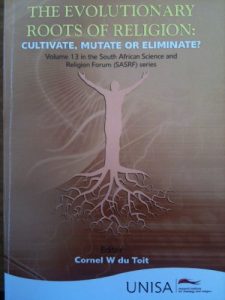To say that religion is a product of evolution leads to the misconception that it is genetically determined, hence not intrinsically valuable. A better approach is to see it as a feasible application of human rationality, compatible with human physio-mental development since Cro-Magnon times. We do not have a religious gene pool that can be mapped, only a multitude of religions, all traceable to our earliest ancestors and their religious interpretation of their life world. To explain the phenomenon, key concepts have been isolated by various thinkers: Girard with his scapegoat mechanism; Wolpert with his emphasis on causality; Pascal Boyer with his inferential systems, et cetera. None of these models on its own accounts for religion. They have to be seen together. Nowadays many thinkers believe they have outgrown religion and that it has been supplanted by modern scientific explanations of life. The dialectics between these approaches is fruitful for the science-religion debate in that it permits constructive input from both sides. Religions evolve, but they do not necessarily progress. They have satisfied different needs through the ages. The question is what they do for people in a modern techno-scienti¬fic world. A strictly scientific worldview is too confined to satisfy the human need for meaning.
This book is volume 13 in the SASRF series and repre-sents South African perspectives on the debate.
This book is volume 13 in the SASRF series and repre-sents South African perspectives on the debate.






